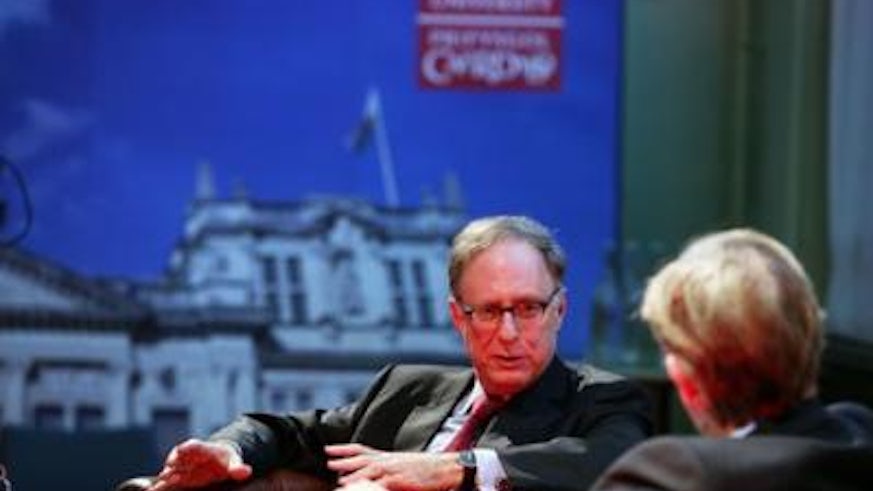NATO after the Wales summit
3 Medi 2014

The University hosted an international debate to examine the challenges confronting the NATO Alliance.
On the eve of the Wales Summit, representatives from NATO met with leading academics, political thinkers and decision makers from the international security and defence community across Europe and North America, to consider a range of issues affecting the world's security landscape.
From defence against cybercrime and maritime piracy, to Russia after Crimea and transatlantic cooperation in a post-Afghanistan age, the 'NATO after the Wales Summit' provided a forum to rethink how NATO should prepare for emerging challenges in an unpredictable future. Attendees were given the opportunity to challenge speakers on some of the most pressing international issues such as the rise of Islamic militancy in Nigeria, Syria and Iraq.
"The NATO Summit is an important juncture in the Alliance's decision making process," said Cardiff's Vice-Chancellor, Professor Colin Riordan. "The 'NATO after the Wales Summit' conference presents the University with the opportunity to contribute to the wider debate around the role and influence of NATO by drawing on its own expertise in the areas of politics, international relations and maritime security. The conference, I am pleased to say, features experts from our neighbouring universities in Swansea and Aberystwyth, as well as our GW4 partners in Bath, Bristol and Exeter universities who together will contribute to a lively and thought-provoking exchange of ideas.
"Like all universities, Cardiff plays an important role in society as a place where people can put forward new ideas and opinions on subject matters that we know can engender strongly conflicting views. Through this conference we will provide a platform for the perspectives of interested groups that may, at times, be strongly at odds with each other."
First Minister of Wales, The Rt. Hon. Carwyn Jones AM, said: "The NATO summit will be the largest political gathering of international leaders to ever take place in the UK and I am immensely proud that it is happening in Wales. It will bring with it unprecedented levels of international attention and an opportunity like no other to advertise the benefits of our modern and dynamic country to the world. "The Summit is an important chance for world leaders to address the issues which threaten our national security and through other gatherings, such as this event today, discussions can stimulate thinking to influence policy in the coming months and years. I'm sure that the wide-range of experts involved in this debate will make it a very interesting and challenging one."
Following a welcome address, the conference was punctuated by five sessions, each dealing with a different global challenge: Maritime Security; Cyber Security; Smart Defence: Planning for the future, and NATO and the Transatlantic Partnership. 'The Future of NATO', the conference's keynote address took the form of a conversation between NATO Deputy Secretary General, Ambassador Alexander Vershbow, and Professor Ian Hargreaves from the School of Journalism, Media and Cultural Studies.
Speakers included Director of Chatham House (Royal Institute of International Affairs) Dr Robin Niblett; NATO Deputy Assistant Secretary General for Emerging Security Challenges, Dr Jamie Shea; Professor Mike Levi (Criminology) and Cardiff's Dr Christian Bueger, Reader in International Relations.
The debate was held in the historic Pierhead building in Cardiff. A full copy of the 'NATO after the Wales Summit' programme can be viewed here.